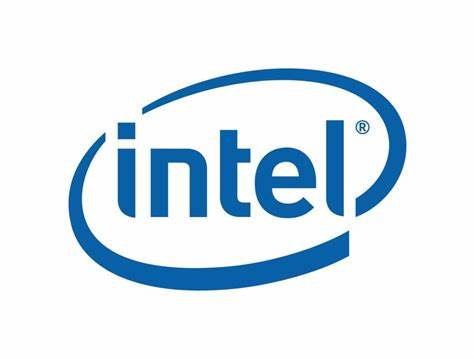Introduction
Are you a highly skilled Analog Engineer eager to design the foundational circuits that power the next generation of computing and communication technologies? Intel, a world leader in semiconductor innovation, is seeking talented Analog Engineers to join its cutting-edge design teams. This is an exceptional opportunity to work on complex, high-performance analog and mixed-signal circuits for processors, chipsets, connectivity solutions, and AI accelerators. If you have a deep understanding of analog design principles, a passion for pushing performance boundaries, and expertise in state-of-the-art semiconductor processes, Intel offers an impactful and challenging career.
Roles and Responsibilities
As an Analog Engineer at Intel, you will be responsible for the design, simulation, and verification of various analog and mixed-signal circuits. Your responsibilities may include:
- Designing analog and mixed-signal blocks such as ADCs, DACs, PLLs, LDOs, high-speed I/Os, amplifiers, filters, and sensor interfaces.
- Performing detailed circuit simulations (e.g., SPICE, Spectre) to analyze performance, power, noise, and reliability.
- Collaborating with system architects, digital designers, layout engineers, and validation teams to ensure seamless integration and functionality.
- Conducting pre-silicon verification and post-silicon validation, troubleshooting, and characterization.
- Developing test plans and methodologies for analog circuit blocks.
- Analyzing design trade-offs (e.g., power vs. performance vs. area) and optimizing circuits for specific applications.
- Documenting design specifications, simulation results, and test reports.
- Staying updated with the latest analog design techniques, EDA tools, and semiconductor process technologies.
- Contributing to intellectual property generation through patents and technical disclosures.
Salary and Benefits
Intel offers a highly competitive salary and comprehensive benefits package for Analog Engineers, reflecting its leadership position in the semiconductor industry. While specific figures can vary by location, experience, and role level, typical offerings include:
- Competitive base salary, often among the top in the semiconductor industry.
- Performance-based bonuses and eligibility for annual incentive plans.
- Stock grants (e.g., Restricted Stock Units – RSUs) that vest over time.
- Comprehensive health, dental, and vision insurance for you and your family.
- Retirement savings plans (e.g., Provident Fund as per Indian regulations).
- Generous paid time off, including holidays and vacation.
- Opportunities for professional development, including technical training, conferences, and advanced degree support.
- On-site amenities (depending on location), such as fitness centers, cafeterias, and transportation support.
- Employee stock purchase plan.
- Relocation assistance for eligible candidates.
- A stimulating and inclusive work environment with access to cutting-edge research and development.
Application Process
Ready to contribute to the core of Intel’s innovation? Here’s how to apply for an Analog Engineer position:
- Online Application: Visit the Intel Careers website and search for “Analog Design Engineer,” “Mixed-Signal Design Engineer,” “SerDes Design Engineer,” or similar relevant titles.
- Specialized Resume/CV: Prepare a detailed resume emphasizing your strong academic background (Master’s or Ph.D. often preferred for design roles), relevant coursework in analog/mixed-signal circuit design, solid-state physics, control systems, and programming skills (e.g., Cadence Skill, Python for automation). Highlight any thesis work, research projects, publications, or experience with industry-standard EDA tools (Cadence Virtuoso, Spectre, HSPICE, AMS, etc.).
- Cover Letter (Recommended): A well-crafted cover letter can articulate your specific interests in Intel’s technology and how your expertise aligns with their analog design challenges.
- Technical Assessments (if applicable): Some roles may require online assessments testing fundamental circuit analysis, analog electronics, or programming aptitude.
- Interview Scheduling: Successful candidates will be invited for interview rounds.
Interview Process
The interview process for an Analog Engineer at Intel is highly technical and designed to thoroughly assess your design prowess and fundamental understanding. It typically includes:
- HR Screen: An initial discussion about your academic background, career aspirations, and cultural fit within Intel.
- Technical Phone Screen(s): These rounds will likely involve in-depth questions on analog circuit theory, device physics, basic circuit analysis, and potentially design trade-offs for common blocks (e.g., op-amps, bandgap references, PLLs).
- Onsite/Virtual Technical Interviews (multiple rounds, often 4-6): Expect several intense rounds focusing on:
- Analog Circuit Design: Detailed questions on the design, analysis, and optimization of various analog blocks. You might be asked to sketch circuits on a whiteboard and discuss their behavior, non-idealities, and compensation techniques.
- Device Physics: Understanding of MOSFET characteristics, short-channel effects, noise mechanisms, and process variations.
- Mixed-Signal Concepts: How analog and digital blocks interact, clocking, noise isolation, signal integrity.
- EDA Tools: Your experience with Cadence Virtuoso, Spectre, Layout tools, and simulation methodologies.
- Problem Solving: Design challenges or troubleshooting scenarios related to analog circuits.
- Project/Thesis Discussion: In-depth review of your past design projects or thesis work, focusing on your contributions, challenges, and insights.
- Behavioral Questions: Assessing your teamwork, communication, and approach to complex design problems and debugging.
Conclusion
An Analog Engineer role at Intel offers an exciting career opportunity to be at the forefront of semiconductor innovation, contributing to the very foundation of modern electronics. If you are an exceptionally talented analog designer with a meticulous approach, a strong grasp of fundamentals, and a drive to create high-performance integrated circuits, Intel provides an unparalleled platform to advance your skills and make a profound impact on technology. Apply today and help power the future!
